What Is a Medical Esthetician in Canada?
Certification, Scope & Legal Requirements
With the rise of non-invasive cosmetic procedures and medical-grade skincare treatments, the role of the medical esthetician in Canada has gained significant attention. But what exactly sets a medical esthetician apart from a traditional esthetician? And what training and licensing are required to work legally and safely in this advanced field?
This guide breaks down the key differences, legal scope of practice, and certification pathways for medical estheticians in Canada—especially for those interested in laser technology, advanced aesthetics, and dermal therapies.

What Is a Medical Esthetician?
A medical esthetician is a trained skincare professional who provides advanced, often medically-adjacent treatments under the supervision of a physician or in a clinical setting. Unlike standard estheticians, medical estheticians focus on corrective skincare, post-operative recovery support, and the use of medical-grade technology and products.
Key Services Offered by Medical Estheticians in Canada:
-
Laser hair removal
-
Laser skin resurfacing / IPL (Intense Pulsed Light)
-
Microdermabrasion
-
Chemical peels (medium to deep)
-
Microneedling and dermal rolling
-
Radiofrequency (RF) skin tightening
-
LED light therapy
-
Acne, scarring, and pigmentation treatments
Note: The use of injectables (e.g., Botox, dermal fillers) is restricted to licensed medical professionals (nurses, doctors).
Medical Esthetician vs. Esthetician: What’s the Difference?
| Category | Traditional Esthetician | Medical Esthetician |
|---|---|---|
| Workplace | Spas, salons, freelance | Medical spas, dermatology clinics |
| Tools used | Manual facials, wax, basic skincare | Lasers, IPL, microneedling, RF devices |
| Regulation | Varies by province | Often requires medical oversight |
| Certification | Esthetics diploma/certificate | Additional medical aesthetics training |
| Client Focus | Relaxation, basic skincare | Corrective treatment, complex skin issues |
Certification Requirements in Canada
There is no unified national medical esthetics license in Canada. Instead, aspiring professionals must:
-
Complete a base esthetics program (600–1500 hrs) at an accredited school.
-
Enroll in an advanced aesthetics or medical aesthetics program, covering laser theory, skin anatomy, safety, and medical spa equipment.
-
Earn certifications in specific treatments (e.g., Laser Technician Certificate, Advanced Dermal Therapy Diploma).
Many training centres and private academies across provinces offer these courses, including:
-
Canadian Beauty College (Ontario)
-
Dominelli International College of Esthetics (BC)
-
EvelineCharles Academy (Alberta)
-
Gina's College of Advanced Aesthetics (Ontario)
Legal Oversight & Doctor Supervision: Do You Need It?
Yes—in many provinces, operating laser or IPL devices requires physician oversight or clinic registration. While regulation varies, here are the general standards:
-
British Columbia (BC): Laser/IPL operators must complete an accredited course and work under the supervision of a physician or be part of a designated medical practice. This is regulated under the Medical Services Plan and Health Professions Act.
-
Ontario: Not formally regulated, but insurers often require laser operators to be trained and supervised within a medical spa framework. Clinics performing medical esthetic procedures must carry liability insurance.
-
Alberta: Similar to Ontario. There are no specific regulations, but working under a medical director is recommended for high-risk services.
-
Nova Scotia: One of the strictest provinces. Laser/IPL treatments fall under medical practice, and operators must follow physician-led protocols.
Who Can Legally Perform Advanced Aesthetic Services?
| Treatment Type | Who Can Perform It? |
|---|---|
| Basic facials, waxing | Certified estheticians |
| IPL/Laser hair removal | Certified techs w/ medical oversight (varies) |
| Microneedling, RF | Medical estheticians in clinical settings |
| Injectables (Botox, fillers) | Nurses, doctors only |
Career Outlook for Medical Estheticians in Canada (2025)
-
Rising demand: Anti-aging, acne correction, and non-surgical treatments are trending.
-
Higher salary range: Compared to spa estheticians, medical estheticians can earn $25–$45/hour or more, depending on skill and clinic reputation.
-
Work settings: Dermatology offices, plastic surgery clinics, medical spas, high-end wellness centres.
Final Thoughts
Medical esthetics in Canada is a rapidly growing field offering rewarding, higher-paying career opportunities for skincare professionals ready to go beyond the basics. While the regulations differ by province, a strong foundation in esthetics plus advanced certification—and the right supervision—can open doors to a dynamic, in-demand career.
Interested in equipping your advanced spa or medical esthetics studio? Check out our curated line of treatment beds and spa furniture designed for clinical comfort and professional results.





Leave a comment